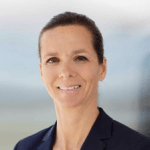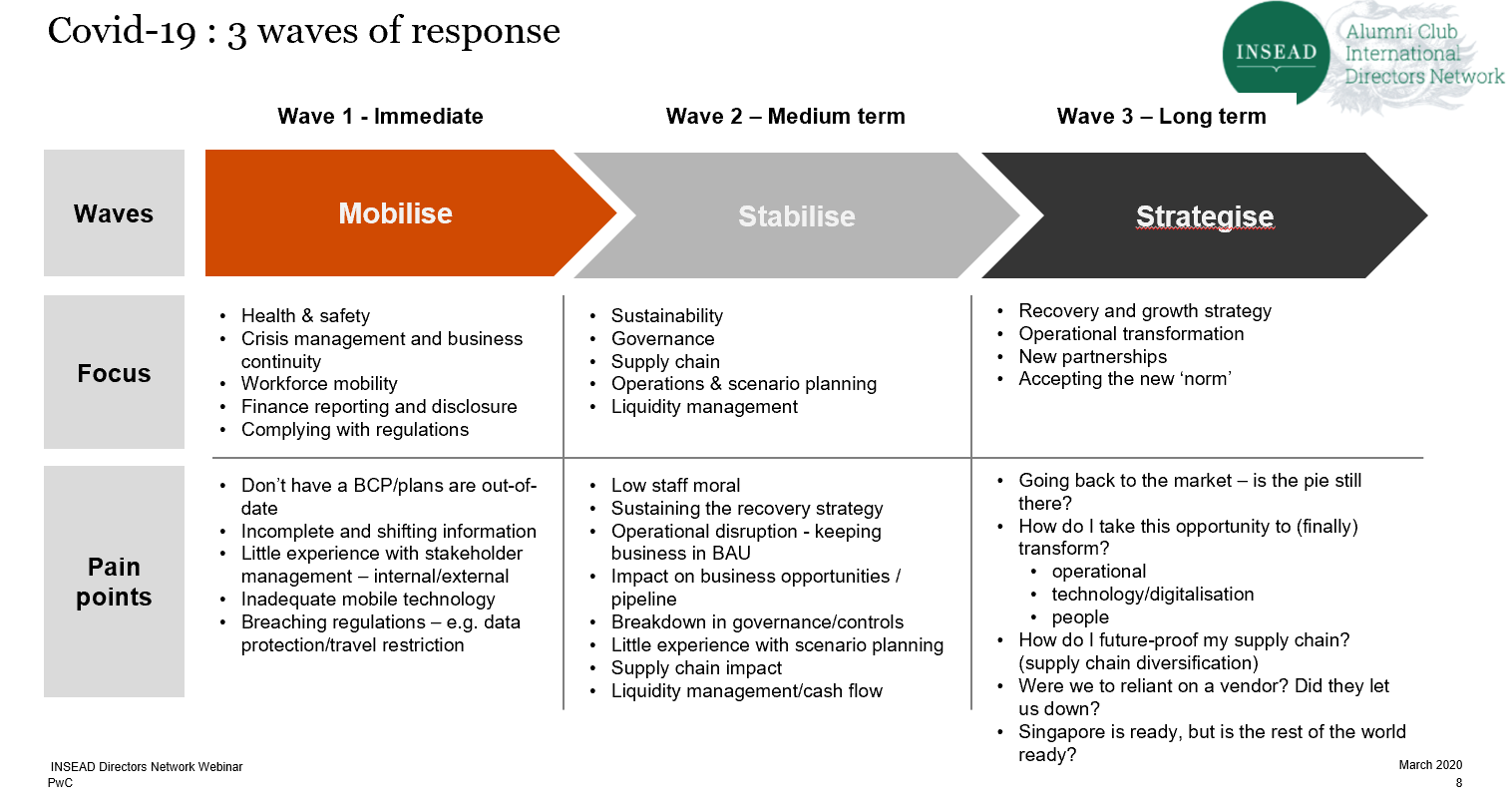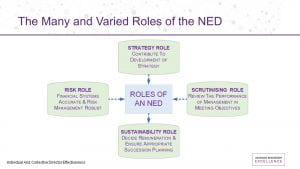Members Board & Corporate Governance Positions Announcement 3Q – 2019
INSEADs International Director Network, IDN, is proud to share the recent appointments of board and corporate governance positions of our members, recognizing our members and the strength of our IDN network.
IDN members has been appointed to 33 new board positions in 18 countries, summing up to 213 position announcements since 2017.
IDN is a network of International Board Directors, where full membership is open to all INSEAD Alumni with appropriate directorship experience and is automatic for Certified Directors(IDP-C) from INSEADs International Directors Program (IDP).
The aim of the IDN network is to facilitate contacts, share insights and experiences on international board topics and promote excellence in corporate governance.
To date, IDP has been completed by 1133 participants, with 837 certified IDP-C/ IDBP-C directors, and our international board network includes more than 1300 members.
IDN works closely with INSEAD Corporate Governance Centre,which undertakes cutting-edge research and teachingtailored to the needs of boards and international directors. It fosters a global dialogue on the challenges of corporate governance and leadership in an international context.
INSEAD Directors’ Network – Members New Board & Corporate Governance Positions
IDN members – Certified IDP-C Board Directors
Natalisio Almeida – May 2019 – Non-Executive Board Director at Banco Original, (Private, HQ Brazil)
Reon Bernard – August 2019 – Chairman at Sekta Group (Private, HQ South Africa)
Katia Ciesielska – June 2019 – Board Member at Luxembourg Institute of Directors (Private, HQ Luxembourg)
Margaret Clandillon – January 2019 – Non-Executive Board Director at Investec Aircraft Syndicate SPC (Private, HQ Cayman)
Patrick Devenish – May 2019 – Chairman Tobacco Industry Marketing Board (Government, HQ Zimbabwe)
Hamza Didaraly – November 2018 – Chairman at A. I Ambassador (Private, HQ France)
Daniel Flammer – July 2019 – Non-Executive Chairman at Tiwel Holding AG (Private, HQ Switzerland) main shareholder of Sulzer AG (Listed, HQ Switzerland)
Fennemiek Gommer – October 2019 – Non-Executive Board Director at IME Medical Electrospinning (Private, HQ Netherlands)
Richard Grotendorst – November 2018 – Supervisory Board Member at Atomic Austria GmbH (Public, HQ Austria)
Susana Gomez Smith – September 2019 – Non-Executive Board Director, Member Audit and Remuneration Committees at Banco CTT (Private, HQ Portugal)
Fernand Grulms – January 2019 – Non-Executive Board Director at BIL Manage Invest S.A. (Private, HQ Luxembourg)
Matthew Kimball – June2019 – Board Member of Brunei Shell Marketing Company, JV of the Government of His Majesty the Sultan of Brunei and Shell Overseas Holdings Limited (Private, HQ Brunei)
Denise Koopmans – May 2019 – Non-Executive Board Director at Swiss Post (Public, HQ Switzerland)
Saskia Kunst – October 2019 – Chairman of the Board at Everitt Healthcare (Private, HQ Netherlands)
Karen Loon – September 2018 – Independent Director, Chair Audit and Member Risk Committees at Banque Pictet & Cie (Asia) Ltd (Private, HQ Singapore)
Abdulla Al Mansoori – April 2019 – Member of Adv Board at Awad Capital (Private, HQ Dubai)
Andrea Prencipe – May 2019 – Chairman at Satispay Europe S.A. (Private, HQ Luxembourg)
Thomas Seale – June 2019 – Board Member at Norvestor VIII GP (Private, HQ Luxembourg)
Philip Spriet – June 2019 – Non-Executive Board Director at HRD (Private, HQ Belgium)
Nicoline Spruijt – January 2019 – Board Member at Brewery de Brabandere (Private, HQ Belgium)
Luc Sterckx – June 2019 – Non-Executive Board Director at Sarens Bestuur NV (Private, HQ Belgium)
Jeremy Tan – January 2019 – Executive Director at PTC Far East, Fayat Group (Private, HQ Singapore)
Jillian van Turnhout – October2019 – Board Member at The Arts Council of Ireland (State, HQ Ireland)
IDN Members – Board Directors
Jeroen Cammeraat – March 2019 – Chairman of the Board at Cassini Technologies BV (Private, HQ Netherlands)
Jack Clemons – January 2018 – Non-Executive Board Director at DKSH Holding AG (Listed, HQ Switzerland)
Johan van Genechten – 2018– Chairman of the Board at Board Member at 4C Nordic – weare4c.com (Private, HQ Belgium)
Chandra P Leo – November 2018 – Board Member at Galecto Biptech (Private, HQ Denmark)
Paul Leinders – September 2018 – Board Member at Holding de Participation Marocaine (Private, HQ Marocco)
IDN Board – New Board Directors
Karen Loon – September 2019 – Board Member, Member Communication & Membership Committees, Treasurer at INSEAD Directors Network (Non-Profit, HQ France)
Pamela Ravasio – September 2019 – Board Member, Member Fundraising Committee at INSEAD Directors Network (Non-Profit, HQ France)
Hagen Schweinitz – September 2019 – Board Member, Chair of the Membership Committee, Member Nomination & Communication Committees at INSEAD Directors Network (Non-Profit, HQ France)
Jeff Scott – September 2019– Board Member, Member Communication Committee, Lead for the IDN Ambassadors at INSEAD Directors Network (Non-Profit, HQ France)
Previous board position announcements by shared by IDN;
July 2019 February 2019 November 2018 July 2018 April 2018 January 2018 October 2017
For more information about:
INSEAD International Directors’ Network: https://blogs.insead.edu/idpn-globalclub
INSEADs Corporate Governance Programmes: https://www.insead.edu/executive-education/corporate-governance
For members of IDN, please ensure that you share your new appointments via survey shared to you vi mail, any queries contact [email protected]
For head hunters interested in finding international board members focused on staying up to date with latest board and governance insights, please contact IDN President, Helen Pitcher OBE, at [email protected]
For organisations interested in partnering with IDN, please contact IDN President, Helen Pitcher OBE, at [email protected]
On behalf of the INSEAD International Directors’ Network Board,
Liselotte Engstam,
IDN Board Member, Chair Communication Committee
[email protected]




















